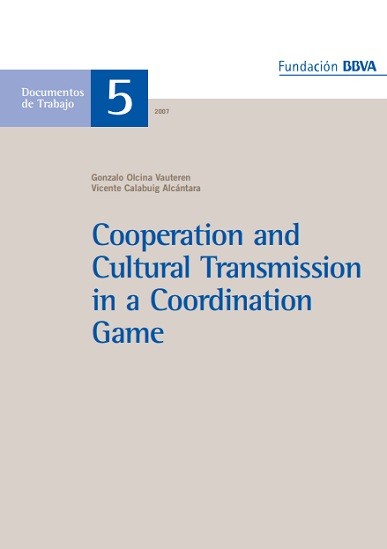
PublicationWorking Papers
Cooperation and Cultural Transmission in a Coordination Game
We present an overlapping generations model with cultural transmission of preferences, in which players face in each period a two-stage coordination game that consists of a production stage followed by a distribution phase. In the globally stable steady state of society, there will be a mixed distribution of preferences where both selfish and other-regarding preference sare present and, more importantly, players coordinate on the cooperative equilibrium of the coordination game.
The presence of a significant fraction of individuals with other-regarding preferences acts as a stock of social capital in the society, reducing personal risk. If the proportion of selfish individuals in the initial condition of the dynamics is very high, there is still multiplicity of equilibria. We show that if there is heterogeneity in the behavior among groups and a positive rate of migration, then all groups will converge to the cooperative result.
